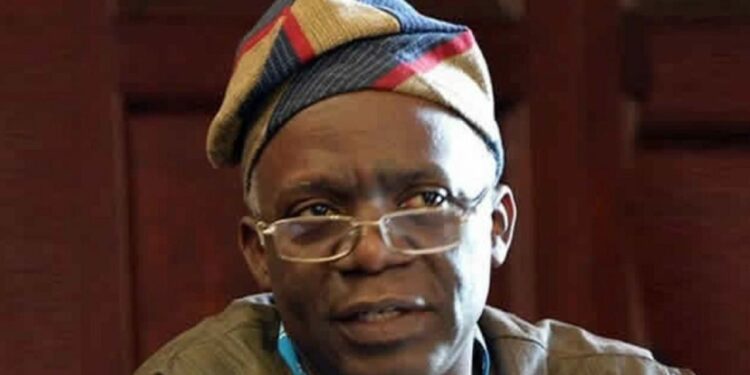Human rights lawyer and Senior Advocate of Nigeria (SAN), Femi Falana, has said the choice of the new chairman of the Economic and Financial Crimes Commission (EFCC) and that of the Independent Corrupt Practices and Other Related Offences Commission (ICPC) coming from the same geopolitical zone was unlawful and against the federal character principle.
He specifically said both chairmen of the two anti-graft agencies in Nigeria were not supposed to come from the same geopolitical zone.
Falana said this on Monday while making a live appearance on the Channels Television’s breakfast show ‘Sunrise Daily’.
According to him, if the EFCC Chairman comes from the northern region, the southern region should produce the chairman of ICPC.
There has been divergent views on the legality and constitutionality of the appointment of the new EFCC Chairman, Ola Olukoyede, by President Bola Tinubu.
Falana admitted that the newly appointed EFCC Chairman, Mr Ola Olukoyede was qualified to lead the anti-graft commission having previously served in some high capacity positions in the agency as Chief of Staff to the EFCC Chairman (2016-2018) and Secretary to the Commission (2018-2023) as well as having 22 years cognate experience.
He said, “There is no issue; the only issue that has been raised has to be considered by the government is that we have in this country, the Federal Character Commission Act and also by the virtue of Section 14 of the constitution, appointments must reflect Federal Character.
“If you are going to have the EFCC and the ICPC, the heads cannot come from the same zone. If there are two positions in the public service, one must go to the North, one must go to the South. If there are four, two must go to the South, two must go to the North. If there are six, one must go to each geopolitical zone. That is the law in Nigeria today.
“So, I am not comfortable with the fact that the heads of the EFCC and the ICPC are from the same zone. Apart from that, Mr Ola Olukoyede is eminently qualified to head the EFCC. My colleagues who have criticised the appointment have not looked at the relevant provisions of the EFCC which is Section 2 which provides that the chairman must at least be an assistant commissioner of police or his equivalent in the security service/law enforcement agency.
“The law doesn’t state that the cognate experience must be in that agency,” the senior lawyer added.



